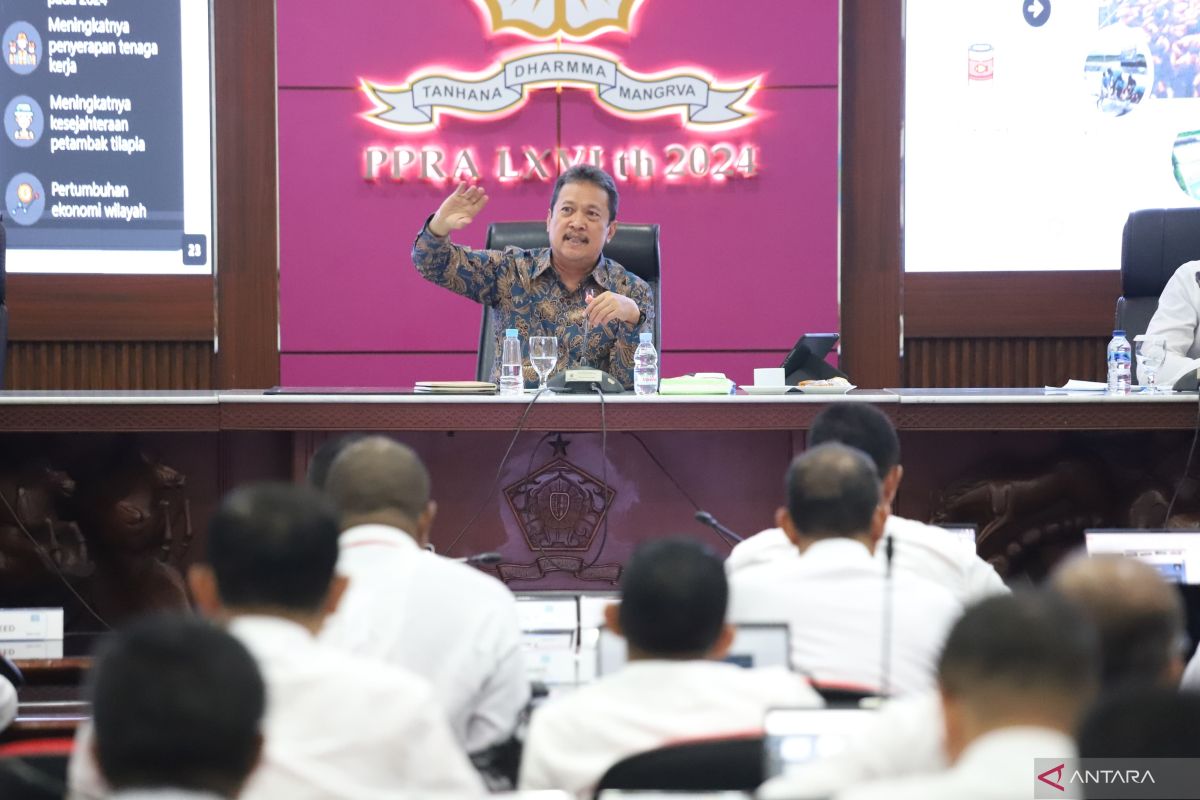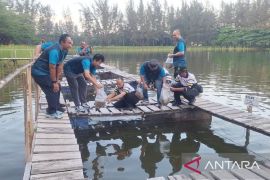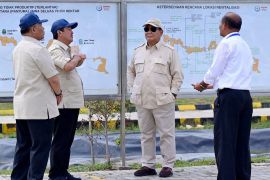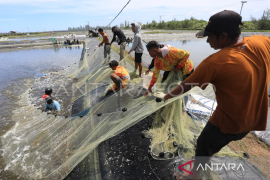Jakarta (ANTARA) - Maritime Affairs and Fisheries Minister Sakti Wahyu Trenggono has said that the high prevalence of tilapia farming in lakes or reservoirs could damage ecosystems and pollute water, which could impact the quality of fish harvests.He noted that tilapia farming is common in Indonesian lakes or reservoirs because the market share is high at 1.3 tons per year with a 90-percent domestic absorption rate.
"If we stop fish farming in a lake or reservoir, it will trigger a reaction. In fact, if it continues, it can pollute the environment, which will also have an impact on the quality of the fish produced," he said here on Wednesday.
He noted that tilapia also has a high market share abroad. Based on Future Market Insight data, the world market value of tilapia in 2024 is projected to reach US$14.46 billion and increase to US$23.02 billion in 2034.
Trenggono noted that to minimize farming activities in lakes, his ministry has devised a strategy that involves building model projects, one of which is the salinity-tolerant tilapia farming model in Karawang, West Java, on 80 hectares of land.
The success of the tilapia farming model is expected to encourage efforts to relocate farming activities from lakes and reservoirs to land.
Baca juga: Upaya membangun industri agro yang menyejahterakan petani
Baca juga: "Contract farming" jadi jurus AMIN kendalikan harga pangan
The productivity of the salinity-tolerant tilapia farming model has reached 7,020 tons per year, or Rp196.5 billion (around US$11.92 million), with a selling price assumption of Rp28 thousand (around US$1.71) per kilogram. Production is planned to be increased to 10 thousand tons per year.
Salinity-tolerant tilapia farming activities in Karawang, he continued, are supported by environmentally friendly technology. The ministry has prepared wastewater management installations, automatic feeding machines, and water quality measuring equipment to support the quality of tilapia.
These methods and technology used in the farming model can be duplicated in various regions in Indonesia. In this regard, he expressed optimism that relocation would be easier because the farmers would have a way to continue their business.
Pewarta : Sinta Ambarwati, Raka Adji
Editor:
I Komang Suparta
COPYRIGHT © ANTARA 2026



